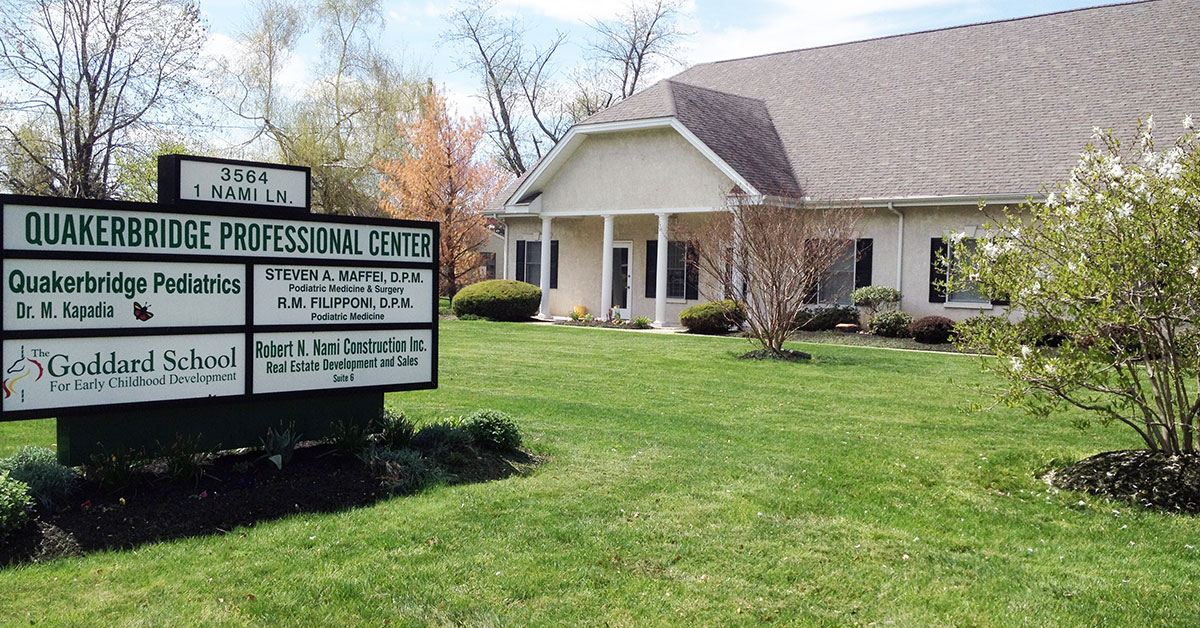Life Threatening Symptoms
At Quakerbridge Pediatrics we understand that every parent’s nightmare involves a medical emergency which results in life threatening symptoms for their child. It is imperative to know exactly how to identify dangerous symptoms and to know when you should call Emergency Medical Services (911).
Use the following guidelines from Dr. Kapadia, to understand when to call 911 during an emergency.
Severe Breathing Problems
A child with respiratory problems will have difficulty breathing and taking in oxygen. Causes may include asthma, infection, pneumonia, or choking. The primary signs of severe breathing problems include coughing, labored breathing, inability to speak, wheezing, grunting, and a change in complexion color to blue. Call 911 if a child exhibits any of the following symptoms and the condition is worsening instead of improving:
- Breathing has stopped
- Child is taking 50-60 breaths per minute
- Child is choking and unable to breathe, or is turning blue around the mouth
- Difficulty breathing follows a medicine, food, or bee sting (the primary concern is severe allergic reaction or anaphylaxis)
Severe Bleeding
A child that has been cut or is bleeding may be at risk. Always apply pressure to a bleeding wound and assess the extent of any damage. A child with deep cuts may require stitches and should be taken to the hospital. Call 911 if your child experiences:
- Blood pumping or spurting from the wound
- Child has a known bleeding disorder
- Blood is pouring out and can’t be stopped with direct pressure
Broken Bones
It is common for children to experience a broken bone. While most injuries related to broken bones are not life threatening, the child should always be taken to a hospital or urgent care center for a detailed evaluation. In most cases, parents can drive children to the hospital, however the following symptoms may warrant a call to 911:
- The broken bone is so severe that the pain cannot be controlled
- The broken bone is sticking out of the child’s skin
- Trauma to the head or neck was involved
- Child exhibits a state of altered consciousness
Seizures or Convulsions
Infants and toddlers may experience a febrile seizure as a result of a rapid rise in temperature. Most seizures related to fever are over quickly and do not require emergency attention. However, if a child is experiencing new seizures or a seizure for the first time, they should be seen by a doctor as soon as possible. Reoccurring seizures should be reported by phone to your doctor to ensure the issue is not serious. If a child is experiencing a seizure and any of the following symptoms, 911 should be called:
- Seizure has not stopped after 3 to 5 minutes
- Child is turning blue or having difficulty breathing as a result of the seizure
- Child’s mental state does not return to normal after the seizure has concluded
Falls: Injuries To Head or Spine
A child who falls from a considerable height may be prone to experience serious injury to the head, spine, or internal organs. After a child experiences a fall, talk with the child to ensure they can answer common questions appropriately. If the child exhibits the following symptoms after a fall, call 911:
- Child vomits more than once
- You suspect internal injuries
- You suspect an injury to the head or neck
- Child loses consciousness
Poisoning
If you suspect a child has gotten into a medicine cabinet or supply of household cleaners and has ingested or been exposed to a dangerous substance it is important to call the local Poison Control Center immediately. The experts at the Poison Control Center will be able to quickly and effectively assess the situation and will advise what steps should be taken next. If a child exhibits any of the following symptoms, call 911:
- Child is unresponsive
- Poison Control Center advises you call 911
Vomiting and Diarrhea
If a child becomes dehydrated and experiences severe vomiting and/or diarrhea emergency services may need to be called. Pay close attention to a child for symptoms of dehydration such as sunken eyes, dry mucus membranes, or low amounts of urine. If you suspect a child to be dehydrated and continuously exhibits the following symptoms, call 911:
- Child is unresponsive
- Child experience severe cramping and abdominal pain (may be a result of kidney stones or appendicitis)


